#especially with the way i portray josephine.
Explore tagged Tumblr posts
Text
i know it has been quite some time ... alas ... click the <3 for a starter ,
#i miss writing josephine so much.#i hold her so very near and dear to my heart.#therefore.#i have decided to return here.#allow it to be known:#i will MORE THAN LIKELY approach for plotting.#as dynamics + plots are incredibly important to me.#especially with the way i portray josephine.
14 notes
·
View notes
Text
No sympathy for Josephine Anderson.
Don't get me wrong, Rusty Hearts can be good at writing. It's just that sometimes she forgets that too.
I want to focus on the two big mothers in the comic so far: Shez's mother, Meriam, and Jaden's mother, Josephine. There are several key differences in not only the way they are portrayed, but also in how they're perceived and intended to be perceived, especially the surprising deficit of sympathy the narrative gives Josie while Meriam is awarded "mother of the year" by everyone.
TLDR: Josie is allowed to be human. Meriam is a saint.
Josie is called out on her shortcomings as a mother, from parentifiying Jaden to favouring her younger brother, Jacob. Josie is allowed to argue, fight, and act unfavourably towards her daughter, and the narrative rightfully shows Jaden and Josie's relationship as strained.
That can't be said the same for Shez and Meriam.
Rusty Hearts has Meriam's trauma be "higher" "more painful" than Josephine. Because Meriam is an abuse survivor, she can do no wrong and isn't a bad mother when she does the EXACT SAME THINGS Josie is criticised for!
But because Josephine's suffering is supposedly lesser, she's open to criticism and being called a "flawed mother". But not Meriam. Meriam is the greatest mom of all time.
Let's compare:
- Josephine favours Jacob over Jaden. That's a parenting Flaw.
- Meriam favours Shez over all her other children. That's correct. Shez deserves to be favoured.
You could argue that Jacob never put himself in the line of fire between an abuser and his mother, and that's why it's unfair of Josie to favor him. And I'm not disagreeing with that. Shez did a lot for her family, and deserves to have recognition for her sacrifices. The problem is that how Meriam does it...sucks.
Meriam is willing to shut her third-youngest daughter out, comparing her to Shez. The rest of her daughters can walk out, as long as Shez is alright. This is an example of "hurt people hurt others", and how Meriam is slowly propping up Shez as this beacon of protection, one all her daughters should look up to. That's objectification: Shez is losing her identity as a human to be the great saviour of Meriam.
Interestingly, Josie's pedestal on Jacob is an interesting foil to this dynamic. Jacob is, like Shez, a sort of reminder of the trauma suffered by her. Jacob was born on the day Jacobus, Josie's husband, died. Jacob is said to look like Jacobus.
Josie simply favours Jacob on principle. Not only is she a boy mom, but he's the ghost of he husband she lost early. His face bears the similarities of the love of her life. that's fucked up, dawg.
And I'm not denying it's fucked up! It is! Very much so!
....so why doesn't she get any sympathy for it?
There's sympathy for Meriam being hurt, and as a result pedestaling Shez, but there's no sympathy for Josie being hurt, and therefore using Jacob as a way to reflect that grief by showering him in love.
...why?
Either way, their siblings get hurt. Rocky sees her family fall apart as Rissa walks out and Tina loses one of her sisters on a past she was too young to remember. Jaden gets more labour, emotional and physical, because her mother can't let go of her dead father.
But there's no sympathy for Josie.
And here's my theory as to why.
Rusty's view on straight relationships is, to put it lightly, very flawed. She sees men as horny, violent, aggressive villains that women should stay far from, and in several cases that's true and shouldn't be ignored.
That's why no women who knowingly and willingly has a healthy relationship with a normal-ass man who knows women are humans (who do exist, surprisingly, my dad is one) will be portrayed as "good women". They're "flawed", they're criticised, they are bad to Rusty, they need to be saved, which is PRIME VICTIM BLAMING, RUSTY. THATS NOT SOMETHING A FEMINIST DOES.
Rusty does a lot of things that feminists don't do. One of them is transphobia. The other one is prioritising victims, the way she does it.
Again, a comparison:
- Jaden is parentified by Josie because Josie has no resources outside of her mother to take care of their house after her husband DIES.
- Shez is parentified by Meriam because she's the eldest daughter, and of course the mother is too weak to escape her abuse without the help of her CHILD.
But Meriam isn't allowed to just be a hurt person with depth, she's the great mother who was hurt by men. She's Rusty's ultimate radfem victim. There's no depth to her abuse- it's just something she should have expected, partnering with a man, but she's a great mom for teaching Shez to never, EVER, associate with men. It's Rissa's fault for being straight. Tina is being brainwashed. Meriam is the greatest mother, and anyone who disagrees is in favour of domestic abuse.
Josie is a flawed mother. She made the mistake of partnering with a man rather than fulfilling her education, and then said man...died. What a horrible father. Dying.
Josie is wrong to compare Jaden and Jacob, even when Meriam does it. Josie is wrong to parentify Jaden, even when Meriam does it. Josie is wrong to scream at Jaden, Josie is wrong to still love her husband, Josie is....human.
And that's the true tragedy of Meriam, in my opinion. She's not allowed to just...be hurt. Make bad desicions. She's the fantasy of saving an abused mother, and that makes her this...victim, completely stripped of anything than her victimhood and her role as "mother".
Josephine, Jaden, and all the Andersons are Rusty's best characters, but she can't imagine, at all, an actually good story that doesn't perpetuate her politics. It's all wasted potential on a writer who can't even write, and surrounds herself with an echo chamber of her own yes-men and dickriders, never taking criticism for an option.
So yeah. That's it. That's all.
There is no sympathy for Josephine Anderson, according to Rusty Hearts.
No sympathy.
15 notes
·
View notes
Text
finished season 1 of anne with an e
i based my entire personality off of anne shirley as a child so i have large feelings about this and i’m making it other peoples problem
i hate that they gave marilla and matthew love interests, especially when marilla is all into nathaniel. she would not do that. matthew is explicitly stated to have not been interested in romance, and i remember this because i texted my friend saying matthew aromantic. so i am pissed about that
i hoped for more of a sitcom feel where it’s more anne’s escapades and coming of age adventures. i’m not mad about the more angsty storyline, but i’m eagerly awaiting more of anne’s shenanigans in other seasons
building off of that last point, they’re missing a lot of anne and gilbert’s rivalry at the beginning. there’s not a lot of gilbert actually trying to win anne over after the slate-incident (the candy heart and apple on her desk??? and much more) building up to when they actually have a falling out because gilbert is pissed that anne is pissed at him and anne feels all guilty and has her italicized *oh* moment. tl;dr i think anne deserves to be infinitely pettier and more grudge-y and stubborn. and gilbert deserves to have a little butthurt yearning moment.
love that they gave gilbert more backstory instead of having him just be a kind of cocky lovable asshole. wish he wasn’t on that boat mostly because i miss seeing him in direct sunlight. guy of all time tbh.
also actually did appreciate the notes of feminism and such which weren’t really present in the books for obvious reasons. i fully believe that if anne existed now she would do feminist slam poetry and kill sexist men with her bare hands.
one thing that was funny to me about that was how marilla is portrayed as forward thinking while rachel lynde is more close-minded, and then it is mentioned that marilla is conservative and rachel liberal. the second part was in the book which is probably why the line was added but funny to me. so
the casting was flawless i’m on the floor for the casting director, huge fan of their work. that is exactly how they look. the one thing i noticed was that josie pye is described as chubby in the books but i think some fatphobia went into that so i don’t mind at all. also props to amybeth mcnulty for being queer just because i am a queer girl who modeled my third grade self after her so that’s just cool.
love jerry’s character he’s very darling to me and i’m glad he’s been developed in the show
i wish there was more involvement with the girls form school. in the books they all loved anne immediately (josie pye exempt) and i think show!anne deserved that too. but this is not a huge gripe considering the nature of the show
also not a huge gripe but i wish anne had met miss josephine barry the way she had in the books, by engaging in tomfoolery and scaring the absolute shit out of everyone involved. i think it speaks some about the nature of their relationship.
also, josephine barry was meant to be lesbian-coded right?
#anne with an e#anne of green gables#anne shirley#anne shirley cuthbert#gilbert blythe#marilla cuthbert#matthew cuthbert#awae#long post
38 notes
·
View notes
Text
Jo's school, the war, those Germans and how to write a good character purely by accident.
A literary essay that came to my mind yesterday, through the conversation with @nocturnalazure
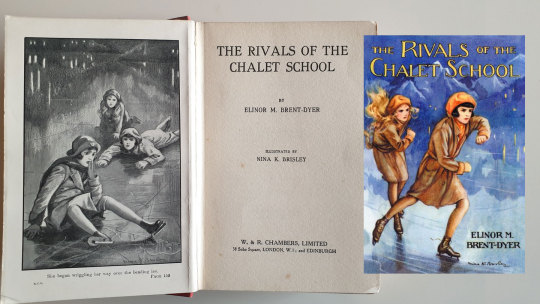
Originally I wanted to include this in the favourite characters tag, but it required so much background information: It's easy to find good characters in well-written books. One of my favourite characters in a badly written book is Frieda Mensch from the Chalet school series (the blonde girl, in the back on both images)
I discovered the Chalet School series at a jumble sale a few years ago, and I enjoy reading it because I like to imagine what could have been done with some good plotting skills. Also it's full of motifs that only made sense in the mid 20th century (the chain-smoking lung specialist) and the German spoken by the characters is simply hilarious. (Onkel Reise - a very tall man.)
Interestingly, the series is heavily inspired by Little Women and its sequels, especially Jo's school. It's about the English sisters Josephine (Joey) and Madge (not Meg!) Bettany who set up an international school in Austria around 1930. There's also an unrelated little Amy around.
Frieda Mensch is an Austrian girl who goes to that school and becomes a friend of Joey's. So far that's nothing special, the series is literally about Joey being everyone's supportive friend. In volume two the sisters spend Christmas with Frieda's family in Innsbruck, which makes her stand out a little. Then, because her first name means "peace" and her surname means "human", the author assigned her the role of the peacemaker in her class. She's portrayed as a serious, law-abiding girl, but of course schoolgirls must also be good sports and know when to break the rules. Even if it's possibly an accidental contradiction, this gives her an implicit conflict. Gradually she becomes the main loyal friend who supports Joey if needs be (like on nightly ice-skating-rescue-missions ^).
When the girls in the books are around 19 and just left school, in real life the annexation of Austria by Nazi Germany hit. By the time the school could be fictionally evacuated, war had begun too. Suddenly this Austrian girl whose name means "peace" and "human" becomes hugely symbolic. Frieda has to flee to England, one of her friends' father is tortured to death, her fiancée is also shortly imprisoned and suddenly she's a girl with a fate. She also helps Joey, who is married by then and has recently given birth, to cross the Channel. At the end of that volume Frieda gives a speech to what's left of the school, about peace and acting humanely despite political conflicts. Wars change many lives and reveal unknown strength in some people - sometimes this is even true for fictional characters.
(If I were set the task to write a novel in which an international school defies the Nazis, my first thought would be that they might have some Jewish students they must protect. Interestingly, this thought never crossed the author's mind. The Nazis turn their full force on this English school because the girls privately vowed to always keep up their girl guide ideals, even the Germans and Austrians from whom they're about to be separated. While violence against Jews is mentioned in the story, it shows how little the threat to them was taken seriously abroad. It also shows the hope that the decent-minded Germans might get the upper hand again after a while. It's strongly biased in its own way, but it's a perspective one doesn't find in books that were written with the whole history in mind. That's why I enjoy historic fiction so much.)
If I ever get so far with the McCarrics, I'm going to steal a lot from Highland Twins go to Chalet School. In fact I've already named Shiena after a character from that book.
13 notes
·
View notes
Text
black emporium 2023 recs
This is a little late, but I wanted to share some awesome fics from this year's @black-emporium-exchange!
I really loved the gifts I got, which were:
let's dance by dabs_into_oblivion, F!Hawke/Loghain, T
Just a wonderful set of scenes between these two, I really liked the shared history they have with Ferelden and the pain there; it was a wonderful connection!
The Second Stage of Grief by Missjlh, F!Hawke & Aveline, G
I have such a soft spot for the friendship between Hawke and Aveline, especially if she's the one to comfort them after All That Remains. The characterization here is so sweet, with the two of them just knowing each other in such a good way.
There were so many amazing fics this year, and the following are just a handful that stuck with me!
somewhere in the half-light by havvke, M!Cousland/Zevran, M
This was an absolutely BEAUTIFUL work that had me so emotional throughout: amazing characterization, and the relationship between Cousland and Zevran develops so naturally as they work through all of their obstacles. This work has been haunting me since I first read it.
Subtlety by SidheLives, F!Hawke/Loghain, E
Again, wonderful characterization and a plot that had me hooked! Hawke's scheming and the pure friction between her and Loghain were entertaining and clever. This was a very fun read, and the dialogue was amazing.
caging the best of us by SourFacedLemon, Gamlen/Malcolm, T
The headcanon that Gamlen had a little crush on Malcolm before Leandra and all the implications of that, seen in an AU where Malcolm survives rather than Leandra--there is so much possibility in this fic!
falling by havvke, F!Cadash/Cassandra, T
My god, I love Cassandra, and I love how she's portrayed here: wonderfully awkward in the face of a brash Inquisitor, and still such a romantic. A perfect mix of moments that had me laughing out loud, and angst; they're both a little bit of a mess, and their relationship development is just lovely.
a far cry from spring by sweettasteofbitter, Josephine/M!Trevelyan, M
A beautifully tender fic exploring the negotiations of their relationship. The atmosphere is so vivid, and the way Josephine and Trevelyan are so comfortable with each other but still have so much to work through is portrayed so well.
The whole collection is such a treat if you'd like to read more <3 I had such a wonderful time participating!!
10 notes
·
View notes
Note
Eloise,
I just wanted to say thank you for your blog. This is going to sound insane but the pipeline to finding your account went like this:
I've been struggling with lots of stuff ranging from my girlfriend of a few years breaking up with me to me heavily struggling with being sexualized by people close to me. All in all, I was looking for posts about womanhood and the like but as a femme sapphic woman, I felt so connected to your account. The aesthetics of it just really made me feel at ease and happy.
I was just curious, do you have any favorite pieces of media like books or movies you really love? I'm just trying to surround myself with stuff like that to help me feel better.
Sorry for all of that, just wanted to spread some love and appreciation. :))
- 🪻
Hello you gorgeous soul, thank you so much for taking the time to write this, you've made my day 💖 This blog is truly just me compiling pretty things that bring me joy, so it's lovely to think that it can have a similar effect on others.
I'm sorry you're having a rough time, in addition to sending you virtual hugs and kisses (xoxoxo), I have no shortage of media recommendations (especially with themes of sapphic womanhood) to offer you:
Anne with an E (2017-2019)
This is my go-to whenever I'm feeling anxious. Not only are the aesthetics absolutely gorgeous, but I adore the way it focuses on female friendships and finding your own identity. It's not afraid to address dark topics but always has an overall message of love and acceptance. I especially love how this adaptation represents queer identity too (Anne and Diana are girlfriends to me. and god bless Cole and Josephine).
I highly recommend the original novel Anne of Green Gables too! The show definitely captures the vibes perfectly so if you like one, you'll like the other.
A League of Their Own (2022)
I couldn't care less about baseball but I do love queer found family and women solidarity, and this has it in spades. All the characters are so loveable and it's just a nice heartwarming story (and very sad at points, but definitely uplifting as a whole).
Heartstopper (2022–)
Truly the ultimate queer comfort show. I don't have any particular thoughts about it that haven't been expressed by other people more eloquently. But my opinions can be summarised simply as: it's good, it's really good, it's so wholesome, the characters are so loveable, I love it.
Emma (2020)
This film is so goddamn pretty. I could watch it on mute and still have a great time just from all the beautiful costumes and cinematography. But the plot is delightful too. Dare I say that this film captures Jane Austen's wit and satire better than any other adaptation. I love how all of her novels portray women finding their way in the world and navigating relationships with friends and family, but I think Emma is especially great in this regard. (Also, Emma and Harriet are girlfriends to me).
Again, I would also recommend the novel Emma. It's quite a challenging read if you're not used to the writing style, but delightful once you get into it. And if we're talking Jane Austen novels, Persuasion is also a favourite of mine (definitely don't watch that film though).
Dating Amber (2020)
This is a tragically underappreciated Irish, queer, coming of age indie film. It's basically about a gay guy and lesbian who pretend to date each other in high school in 1990s Ireland. It's very funny (also sad at times) but ultimately very heartwarming.
Because I'm a sucker for a gay/lesbian beards found family trope, I also recommend these book: The Inverts (1920s lavender marriage, very funny, Seven Husbands of Evelyn Hugo vibes) and Gwen & Art Are Not in Love (Arthurian legend beard relationship, also very funny and camp, BBC Merlin vibes [if you get me]).
And if you like Dating Amber, you'll probably also like Handsome Devil. Another Irish, queer, coming of age indie film (but mlm-centric). It stars the same actor as Dating Amber (Fionn O'Shea), alongside a baby-faced Nicholas Galitzine and Andrew Scott. Imagine Dead Poets Society vibes, except instead of being about Romantic poetry, it's about New Romantic music. And explicitly gay and with a happier ending. (Sorry, this is like four recommendations in one).
The House in the Cerulean Sea
This book is described on the cover as 'like being wrapped up in a big gay blanket', and that is a very accurate description. Imagine Good Omens except it's Miss Peregrine's Home for Peculiar Children (I'm half convinced it's ineffable husbands fanfic tbh). This book made me cry happy tears, it's so incredibly heartwarming and uplifting. Top-notch found family and agonisingly slow-burn pining.
Other honourable mentions:
Please Like Me (2013-2016)
One Day at a Time (2017-2020)
Gentleman Jack (2019-2022)
Little Women (2019)
Pride (2014)
Ladybird (2018)
#if anyone has other recommendations feel free to leave them in the replies xx#film recommendations#tv recommendations#book recommendations#anne with an e#a league of their own#heartstopper#emma 2020#dating amber#the house in the cerulean sea
2 notes
·
View notes
Text
My brief review of Napoleon
I saw the movie twice to get it better and I enjoyed it a lot!
I'm french, my parents are passionate about Napoleon and also Josephine, they read countless books about it, went to conference, reenacting. I live in a region with a lot of monuments dedicated to his glory and battles. So I know about innacuracies and such, so what?
It's just a movie, of course in one movie Scott had to take shortcuts and it wasn't too bad, the 4h version will probably fix a few things !
I enjoyed the battles, Scott is the best for spectacular.
About Napoleon, I think it was a really interesting picture of him, humanized, he wasn't emotionless after all and he was known to be with poor manners and well, very horny. So I wasn't bothered by the way he was portrayed. Joaquin did a very good job with what he understood of Napoleon , the first scene wasn't his best and it reflects I think the anxiety he had during the shooting of the film, a very complex character who's not easy to portray , not knowing how to act him on certain situations. But for the rest of the movie he was great and I enjoyed it a lot once again, especially with Vanessa Kirby , a good duo with a very interesting Josephine as well.
So to conclude, it wasn't the best movie of Joaquin or Scott, but it was enjoyable, interesting portrayal of the characters. Remember what Napoleon said : History is a set of lies agreed upon
5 notes
·
View notes
Text
Here’s my take on Ridley Scott’s Napoleon
Personally, I enjoyed the movie, but for a lot of people, it will be a mixed bag. Let’s just say there’s a lot of leaf in a story that people are probably watching for the forest and the trees.
That said, it’s a given that Napoleon’s multifaceted full cylinder 3D miltary-political-domestic Europe-changing life is worthy of a TV series that can’t be portrayed properly with a mere 2-hour movie. As it is, the history is compressed and the transitions are janky (lmao Egypt). The history seems inconsistently tagged with dates and names for people.
Click the readmore and scroll past to the TL;DR if you want my assessment of the movie’s lens without excessive critique or spoilers. Ridley Scott retains his instinct for horror. In the end, it comes off as a bit of a black comedy… but why?
It’ll be controversial and there are good reasons for that….
…. especially in the sexually conservative/uncomfortable United States (the theater experience was interesting; I heard a lot of scoffing and snickering, depending on what was going on). Yes, even prople who are “bored by and desensitized to shock value Game of Thrones sex scenes” that aren’t romantic or sexy, but nevertheless marital. A good amount of the movie feels like it is about Josephine, and her relationship with Napoleon.
These scenes - and much of the movie - would seem to reflect the distorted image of Napoleon as depicted by the papers and propaganda more so than the historical Napoleon, afaik.
I thought Joaquin’s Napoleon was charismatic enough, if a little tight-lipped in a military way … that didn’t fly for everyone; I’m not sure how true it is to his real historical figure.
The French will surely have an opinion, and hopefully they get a lovely dubbed version to listen to. The English-accented script was occasionally trying.
TL;DR ——
As I watched the movie, I was struck by how many tiny details were drawn out… little moments that emphasized a few things:
Honor and Dishonor
Victory and Defeat
Success and Failure
Indignity
I don’t think Ridley Scott was primarily concerned with Napoleon the person per se. I think Ridley was all about portraying this theme:
The indignity of being human stays with you - poor and unknown, rich and powerful and charismatic, ruined and exiled, indignity remains.
I’m serious! You could run a drinking game on every moment Napoleon suffers a major or minor indignity onscreen. The indignity of flies and mosquitoes, of gore, of beheading, of forgetting one’s hat, of dragging chairs around, of being bested, of being harassed and tested by the press, of being powerless in fertility and faithfulness, of being thwarted, of being lectured by young women in lieu of training young men….. It’s everywhere. It explains almost every weird drawn-out detail.
Life is constantly, inexorably undignified, and NO ONE is immune, even at the height of glory.
Now, was Napoleon the best person to explore that theme? IDK. Perhaps Ridley is saying that he was a man driven by indignities and his desire to exert control over them? Seems like you could do the same theme with modern, contemporary Hollywood stars today. But their lives are glamorous and “clean.” 1800’s France was decidedly not dignified and not under control in ways that are decidedly offensive to the American audience.
1 note
·
View note
Text
Wish Upon(Review)
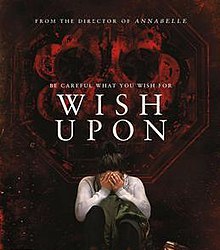
"Wish Upon" is a 2017 American supernatural horror film directed by John R. Leonetti and written by Barbara Marshall. The movie follows the story of a teenage girl named Clare Shannon (played by Joey King) who discovers an ancient Chinese music box that grants her wishes. However, each wish she makes comes with a deadly price, putting herself and those around her in danger.
The film begins with a prologue set in ancient China, where a man is sentenced to death for stealing the music box from a shrine. The box is said to grant seven wishes, but at a great cost. The man makes his final wish, and the box disappears into the shadows.
The story then shifts to present-day America, where we meet Clare Shannon, a high school student struggling to fit in. She lives with her father, Jonathan (played by Ryan Phillippe), a dumpster-diving hoarder who suffers from depression since the suicide of Clare's mother. Clare is constantly bullied by her classmates, especially by her nemesis Darcie (played by Josephine Langford), who is dating Clare's crush, Paul (played by Mitchell Slaggert).
One day, while scavenging through a dumpster, Jonathan finds the mysterious music box and gives it to Clare as a gift. At first, Clare is skeptical, but when she makes her first wish, her life begins to change. She wishes for money, and the next day, a bag of cash falls from the sky. Clare begins to make more wishes, including popularity, beauty, and revenge against her bullies.
However, Clare soon discovers that each wish comes with a price. As her wishes become more and more dangerous, people around her start to die in mysterious ways. Clare realizes that the music box is cursed and that she must find a way to break the curse before it's too late.
The movie's plot is intriguing and has a lot of potential. However, the execution is lacking in many areas. The pacing of the film is slow, and the horror elements are not as effective as they could be. The film relies too heavily on jump scares, which feel forced and predictable. The movie's attempts at social commentary on bullying and high school culture also fall flat and feel cliched.
The acting in the movie is average, with the exception of Joey King's performance as Clare. She portrays the character well, showcasing the character's growth and descent into darkness. However, the other characters feel underdeveloped and stereotypical.
The film's special effects are also lacking. The death scenes are unimpressive and do not have the shock value that is necessary for a horror movie. The makeup and practical effects are also unconvincing.
Overall, "Wish Upon" is a forgettable horror movie with a promising premise that fails to deliver. The slow pacing, predictable jump scares, and lack of effective horror elements make it a disappointing watch. The movie is not scary enough to be considered a horror film and not engaging enough to be considered a drama. The social commentary is also underwhelming and does not add anything to the film.
In conclusion, I would not recommend "Wish Upon" to horror movie fans. While it has an interesting premise, the execution is lacking in many areas. There are far better horror movies out there that are more engaging, scarier, and have more effective social commentary.
1 note
·
View note
Text
Every 6 months or so I get this profound urge to make a comedic video essay on how the 1997 Don Bluth film is a fascinatingly subversive take on the Disney Princess archetype. (No it is not lost on me that Disney now owns the film)
Like especially in the last decade or so where Disney movies make characters royals by loopholes, or in straight up confounding ways (see Princess and the Frog or the live action Aladdin). And treat being a royal less as an actual occupation and more as “person who is attractive that everyone likes and gives money to.” Anastasia is the only Princess film where being royal is portrayed as strictly a performative role, and therefore one that ultimately she rejects. It’s not what she needed, nor what the audience needs, to achieve emotional catharsis.
It’s also fascinatingly subversive in that it takes place at a very specific time and place in history, as opposed to “kind of over there, generally, maybe in Norway? idk”. Like one of the jokes about the Disney Beauty and the Beast is how the French Revolution would have happened shortly after the film. And like, there is something to be said about having a fairy tale be set “long ago and far away”. However, Disney loves to give you the flavor of an era without ever really bringing in the politics of it. It muddies the waters of making royalty palatable at a time when we’ve largely abolished it. Anastasia doesn’t skirt the issue of a Revolution, it starts that way. I always assumed that must be profoundly offensive to Russians, but some basic research showed the opposite for the most part. (Not like they care too much about an animated film from the 90’s, they’ve got bigger things on their plate.)
There is nothing wrong with the Disney approach per se, it works for their films. However, Anastasia isn’t hindered by giving you specific years, months, timelines and cultural touchstones. It exists in the same world as political events, artistic milestones, and even medical innovation (like Freud shows up as a gag, it’s not a guy who looks like Freud, it’s him. You also get Isadora Duncan, and Josephine Baker making cameos. Them showing up provides a quick laugh, but also reinforces the idea that being a royal for Anya isn’t a political role, but would largely just make her a Parisian celebrity of the time with no actual power to affect Russians.)
Even stuff I used to think was unneeded in the animated film proved to be an asset to the film once I saw how it was altered for the theatrical production. The stage musical lacks Rasputin, and pulls in the Bolsheviks and it’s made way less fun or concise as a result. Personally I find it a mopey production without nearly the amount of fun it should have. (Ironically early versions of the film had Bolshevik villains but they replaced them with Rasputin upon learning that Russians found the Bolshevik plot more unpleasant. This was an actual case of “a wizard did it” being a less offensive option.)
Idk, I’ve seen SO much film essay criticism that is about how bad some films are, and there is some stuff I find silly in the film, but every couple of months I’m like “yeah, that was kind of an interesting way to tackle that.”
Talking out loud, because I can’t film or video edit atm, but I’d like to make this happen some day.
#Anastasia#anastasia 1997#Don bluth#film appraisal I geuss#Bolsheviks just made it worse#unnecessary villain#I know Disney owns it#an actually subversive Princess#suprisingly political but still a fairy tale
48 notes
·
View notes
Text
MALMAISON MEDIA SALON SOIRÉE 3: NAPOLEON (2002)
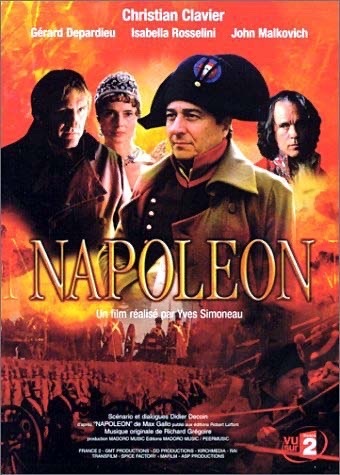
1. The Introduction
Hello, Neighbors. Welcome back to our little salon. Unfortunately, this time the soirée will have to be organized without my personal presence since I have Covid and need to do the responsible thing. That said, I promised to make this review so here you go.
This series came up on my radar thanks to @tairin but I also saw @joachimnapoleon talk about it so this review will be dedicated to both of them, as promised. I love both of you, my friends!
(That said, I remember catching snippets of the episodes on TV back in Russia, but I didn’t watch the entire thing back then.)
I watched all 4 episodes in Russian so I don’t know where it can be obtained in other languages. If you have ways to watch it in English, dear Neighbors, please let me know.
Oh, and also please keep in mind that since I’m from the Frev community and the First Empire isn’t my area of interest, I won’t tackle any potential inaccuracies because I don’t feel like stepping on minefields.
Alright, with that out of the way, let’s begin our soirée before I run out of whatever energy I have. I hope you enjoy yourselves though.
Feel free to take a seat and grab some food. :)
2. The Summary
I think the title pretty much speaks for itself. The miniseries is about, well, Napoleon. Or rather, about his journey from a republican general to emperor. It also tackles his downfall so there’s a lot of stuff to work with.
Let’s take a look at how this series handles the topic.
3. The Story
Oh dear god, the pacing! I don’t think I’ll be considered a revolutionary for saying that cramming the entire fucking Napoleonic era into 4 episodes in hard as shit! And I don’t think this series does a really good job, to be very honest.
A lot of parts are skipped (like the Russian campaign) which makes things really confusing, especially because there is no narration nor clues to provide the unfamiliar spectators with the context they need to understand what the fuck is happening. The only thing we have are maps of campaign locations, but that’s just not enough for people like me,
There are just too many time skips and it makes me wish the creators either made a longer series or focused their miniseries on something in particular, like a particular campaign for example. But alas, that’s not what we see in the series.
Another issue I have is the fact that (partially due to the pacing), unfortunately, the narrative kind of idolizes Napoleon too much for my liking. My personal bias aside, a lot of his abusive actions are glossed over. But, since the framing device is that of Napoleon himself telling the story, I guess it makes sense.
Speaking of which, I actually like the framing device that the creators chose. It has Napoleon tell his story to Betsy Balcombe and I find the scenes of these two together extremely heartwarming. A genuine friendship, which is portrayed quite well. Props for that.
Other moments that I find pretty adorable are Napoleon’s interactions with Josephine in the first episode, but there’s just not enough of such moments to redeem the clunky and confusing story.
4. The Characters
Like I said in the previous section, Napoleon is idolized a bit too much for my liking. Look, I understand his contributions and whatnot but I couldn’t bring myself to like the guy even in the series. Why, you may ask?
Well, if I see the narrative idolize a character all the time, I actually end up having the exact opposite feelings I’m supposed to have and really dislike that character instead. I don’t know how to explain it, maybe I just got fed up with the characterization of Napoleon and couldn’t bring myself to care about him.
Josephine is portrayed in a pretty sympathetic way at first, but becomes more bitchy later, which is apparently a common trope in Napoleonic media,
Caroline and Murat are once again ungrateful ambitious traitors, but their portrayals lack nuance. As in, they’re portrayed as traitors simply due to ambitions and very little attention is given to other motives they may have had or their inner conflicts. That’s wasted potential right there.
Hortense is, as usual, innocent and sweet, which is apparently far from accurate. Thanks to @josefavomjaaga for posting evidence of her bitchiness.
Unfortunately, most characters here lack the complexity that real people have, at least in my opinion. Which is sad, but maybe the condensed narrative played into this. That and propaganda of course.
I love Betsy as a character here though. She is genuinely sweet and kind, but also confident. I like that and her heartwarming friendship with Napoleon.
5. The Acting
Most of the actors are pretty good at portrayed what they were told to but, again, there’s not much nuance and complexity here so the entire potential ends up being completely wasted.
The casting choices (save Josephine and maybe F**ché), however, are questionable at best. The actors look too old for the characters they’re portraying and most people don’t look like themselves at all. But that’s the fault of the casting director, not the actors.
6. The Setting
The decorations and the costumes are pretty good, but I have an issue with the camera pulling a dramatic slow motion a bit too much.
Oh, and also the series doesn’t shy away from showing blood so, if you’re squeamish, be careful.
7. The Music
I think the soundtrack is pretty good. Nothing to complain about.
8. The Conclusion
All in all, the style of the series is pretty, but the substance... The substance is turned into condensed, clunky, confusing mess with characters who are either too good or too bad to feel like real humans, heaps of propaganda that ends up becoming annoying and really questionable casting choices.
I personally wouldn’t really recommend this miniseries but I won’t stop you from watching it if you’re curious. The choice is up to you.
Anyway, with that, let’s finish our little soirée. I’m still weak but I already know what I’m going to review next so stay tuned for updates!
And also stay safe. Please. I mean it.
Love,
- Citizen Green Pixel
#malmaison media salon#napoleonic media#napoleonic television#napoleon bonaparte#josephine de beauharnais#hortense de beauharnais#joachim murat#caroline murat#betsy balcombe#napoleon 2002#frevandrest still refuses to make a fouché tag and i applaud that#i still refuse to make a fouche tag#fouché tw#fouché cw
62 notes
·
View notes
Text
Correction and stuff...
Josefavomjaaga brought this to my attention and they're right. Napoleon didn't officially adopt Louis and Hortense's first born, at least I think he didn't, but did officially recognize him as heir to his throne I believe. Now I have to go hunting in all my books to get this clarified.
Jumping topics here, this just brings up some other interesting points regarding descendants. History can never be really sure how many children Napoleon had. Constant claimed there were only 3 (Franz, Leon, Alexandre) however, there are other suspects. I know there are some historians who agree that Pellapra (a female) probably was Napoleon's. Other historians disagree on the date. Of course, how many other relationships did Napoleon have that resulted in children that were assumed into the families? No one can know for certain.
It's likely that Napoleon is the father of Montholon's daughter Josephine. In a book I'm currently making my way through, there is speculation that Napoleon could have fathered a few children on St. Helena. One, being supposedly fathered by Marchand, but Napoleon was apparently embarrassed by the birth that makes some historian's question if Marchand was the real father or not.
Some question Leon's parentage as Murat apparently was also befriending Elenore around the same time Napoleon was. This is speculation of course.
I didn't know this, but apparently there was some DNA studies done in 2013 on Napoleon's line. It was found that the current descendants of the Walewski line and Jerome's line share the patrilineal DNA going back to Carlo, Napoleon's father. Napoleon III was also tested and showed his patrilineal DNA did NOT match Carlo.
There has been speculation on Napoleon III's parentage even during his lifetime and I think Louis himself questioned it. I think Napoleon III though looks an awful lot like Louis with the heavy lidded eyes that Louis is portrayed as having in his portraits. My guess is that it proves the story that Louis is probably not Carlo's son which has been hinted at now for awhile. Hortense could have had another child by someone else (as she did with Flahaut), certainly.
Carlos and Letizia actually were not a love match at all. They had an arranged marriage, Letizia's pedigree being actually a lot more impressive than Buonapartes she married into. She was a 15 year old girl when she married Carlos. Carlos, who did leave memoirs, basically came out and said he didn't love Letizia and actually had been in love with some other but did a marriage of convienence. There was a lot of myth building around Napoleon's parents by Napoleon and his family when it comes to those two. The idea that Letizia stepping out of the marriage isn't too far of a stretch especially if it would serve some political gain, which their connection to Marbeuf did.
Link with more info:
http://www.ijsciences.com/pub/pdf/V220130935.pdf
#napoleon#bonaparte#Napoleon Bonaparte#napoleon bonaparte#Emperor Napoleon I#Emperor Napoleon Ier#Napoleon I#Napoleon Ier#Buonaparte drama#Louis Bonaparte#Luigi#napoleon i#You are not the father#who is the father#DNA
33 notes
·
View notes
Text
Never Again - SPN Fanfic
@febuwhump : Day 6/ Alt 2 - Trapped Under a Collapsed Building
Title: Never Again
Fandom: Supernatural
Words: 3.1k
Setting: Stanford Era, Brotherhood AU, 9/11/2001
Whumpee: Dean
Caretaker: Sid (OC/RP)
Other Characters: Caleb
Ship: None
Ao3 Link
Summary: Dean is working a job with Caleb in NYC trying to distract himself from Sam's departure for college, when the Twin Towers are hit in a terrorist attack.
Trigger Warnings: 9/11, fire, death, explosions, building collapse, injury or death do to disability
Authors Note:
Dean is 22 Sam is 18 Caleb is 30
Disclaimer:
I'm sorry if info dump I spent four days majorly hyperfixating on this, watching 6+ hours of live news and even longer reading news articles on everything from the event to the elevator system in the towers. Also I was not born until a few months after 9/11 so if I mess up or have gathered wrong information I apologize. Also while the story of Stairwell B is true Dean was obviously not there. I know very little about the actual Sid except that he was a firefighter that day so I apologize if he is portrayed accurately. If you want the true events surrounding stairwell B you can read about them here: . /news/19572389.9-11-attack-josephine-harris-miracle-stairwell-b/
Jensen recently said that most scared he's ever been was on 9/11 and tho Jensen and Dean are in very different circumstances, I tried to capture some of that fear.
I know this one is really late (it's not quite midnight here tho so still on time) and it's because I wrote it today lol. Everything else has been prewritten. With that in mind, this was written very fast and I haven't even had time to re-read the whole things so I apologize for any mistakes.
However! I really love this one guys!
I've always wanted to write a 9/11 piece, especially when I realized it would have happened right after Sam left for college. This is nothing like what my original plan was when I first decided to write one a year ago, but I like it still. It moves really fast I know but it was the only way I could make it work.
I'll say more in the end note and let you guys get to reading lol.
Enjoy!
~TH~
There were very few things that scared Dean more than heights. Very few. One of those things had already happened but he was trying very hard to keep his head in New York and away from Stanford. But regardless, Dean hated heights. And he was very high. Yes people paid over ten bucks for a view he was getting for free. He did not care. It was grossly unfair that Caleb had made him come up here to attend this meeting when the older man just as easily could have come himself.
Dean's phone rang and he looked down at the number. Speak of the devil.
He stepped into the hallway and answered. "I hope you're happy."
"Where are you?" Caleb sounded oddly stressed for this early in the morning.
Dean rolled his eyes, "You know where I am."
"I'm serious. I want to know the exact place you are."
"About to go into the meeting with the guy from McLennan. And no I'm not late. The appointment isn't for a few more minutes."
"You need to leave."
"As much as I'd love to, we actually do need to talk to this dude."
"No. Get out of there. Now."
"Dude I just took two elevators ninety-three stories into the air just so you could make me come back down? If I leave I'm not coming back up here. You're on your own."
"Deuce, listen to me. You have to get out of there. Now. Something bad is going to happen."
That caught Dean's attention. "Did you have a vision?"
"More- more of a nightmare but listen to me you have to get out of there. I don't know what's about to happen but it's bad and you need to be as far away from the Trade Center as possible."
"Are you sure you're not just, I don't know, getting everything mixed up? I mean it was a dream not a vision. Maybe you're just feeling protective and remembering 93'-"
"Dean." The use of the Wincther boy's full name stopped him in his tracks. "It's not. I'm telling you something is going to happen. Not has happened. Is going to."
"Fine, fine. It's not that I don't trust you it's just that those elevators are-"
"Take the stairs."
"You're kidding. It's ninety-three floors, Damian."
"You didn't- Listen I can't explain it. I didn't get the whole picture. I just know that if you don't get out of there right now you will die."
"And the elevator?"
"Please."
"Fine but only to seventy-eight." He didn't understand why the civilians got a straight ride to the top while workers had to take to elevators to get to their floor. But he'd play along until he could get to the express elevators.
"Just get moving."
"Fine, I'll call you back when-"
"No! Just- just stay on the line, alright?"
"Dude how bad was it?" He said, opening the door to the B stairwell and beginning his descent.
"Bad dude. I'm really not even sure what happened but it was bad."
"Do we need to call someone?"
"I wouldn't know what to say. It's more of… just a bad feeling mixed with images I can't place. I don't know man, I just want you out of there."
"Yeah, yeah, and you want me to walk down over ninety flights of stairs to do it. Let me use the elevators and I'll be out in five minutes."
Caleb let out a breath of a laugh at that. "Get down to the express elevator and we'll talk about it. The one's near the top aren't near as fast."
"And here I thought you didn't like the business side of New York."
"Architecture, Deuce. It's the tallest building in the U.S. It'd be a sin not to study it."
Dean let out an involuntary shiver, "Don't remind me."
"What floor are you on now?"
Dean glanced up at the marker as he continued the seemingly endless descent. "Eighty-eight."
"Keep going."
"I am. You gonna call the office and cancel my meeting? They don't seem like the type of people to appreciate a no show. Especially before nine. 8:45 Damian. Who sets a meeting that early?"
"They can deal with it." He said with a smile in his voice. Dean was glad to have relieved at least some of the tension. "I'll call them as soon as you're out."
"Yeah yeah, which will be over an hour at this rate."
"Stop complaining, dude. Just think of it as one of Johnny's training exercises."
"The difference being, Dad never sent us an unholy amount in the air! Mountains? Yeah? Skyscrapers? Never again."
"One day you'll thank me for breaking your fear of heights."
"Breaking them? You mean exploiting them?"
"Hey whatever wor-"
A loud explosion shut out any other sound. The building shook and Dean was sure that the stairs were about to fall out from under him. His phone slipped from his hand and fell over the railing as he desperately grabbed for the shaking rail. Chunks of debris began to fall above him. Something hit his head and his knees started to give out. He was going to die. The building was about to collapse and he was going to die. The shaking stopped. Dean kept his hands firmly on the railing, pulling himself up and taking a few deep breaths.
He was okay. He was fine. Whatever had happened up there didn't involve him.
And he'd done a pretty good job at convincing himself of that before the stairwell began to fill with smoke.
Dean didn't know what was going on but he knew that Caleb was right. He needed to get out of there. Now.
His phone was lost to him. Whether it was broken somewhere or had fallen down the flights, he didn't have time to go looking. Caleb would have to deal until he could get out of there or find someone else with a cellphone. He felt like he was being actively chased by the fire. The smoke was coming down the stairwell faster than he could outrun it.
The eighty-second floor had smoke coming from the doorway. Had the fire spread that fast? Dean still had no idea what was happening. It had to have been some sort of bomb. But how had they gotten it up all the way up? The tower wasn't even open to visitors yet. Last time it had been the parking garage and they'd upped the security since then. How-?
It didn't matter. What mattered was that the smoke had caught up with him. It had caught up with him and he couldn't breathe. It didn't matter. Keep going. Keep going. Keep going. Stop. People needed help. But that wasn't hig job. His job was to get out. But he could hear them. The door was stuck. He should- should he?
Flashes of baby Sammy being pressed into his arms made the decision for him. He turned and ran back up the stairs until he found the door that had stuck in his mind. Someone was pounding on it from the other side.
Dean glanced up, noticing the fire still spreading. They needed to act fast. Some of the debris was blocking the door if he could just-
The debris moved, the door swung open. People started pouring out. Dean was trapped between the flow of people and the wall. He waited, unsure of what else to do. Saving people had always been his job. The fact that there was no supernatural activity involved that he knew of didn't change that fact.
When the last person had rushed past him down the stairs, he went in finding a man in a wheelchair trying to stand up.
Dean gave him a once over. He was smaller. Dean should be able to lift him with relative ease.
"Legs or back?"
The man blinked up at him, falling back in his chair. "What?"
"I need to know how to carry you."
"Back."
Dean couldn't stop the curse. Fireman's carry was out of the question. "Okay, okay, do you think you could hang on if I tried to get you on my back?"
"I think so." The man nodded.
Dean squatted in front of the chair. "Wrap your arms over my shoulders and then lean into me."
The man did as he was told and Dean crossed his arms over his chest, grabbing the man's wrists.
"Do what you can with your legs. I'll get you out of here but I need all the hlp I can get."
The man nodded into his shoulder and Dean stood up. The smoke was really pouring in now. It was nearly impossible to see.
"Grab onto my left arm." He instructed. "I need my right one to feel my way down."
When his arm was free he felt along the wall. It was slower than he would have like but faster than the man would have been able to get down himself. If the man could have at all. Dean thought about asking his name but at this point just breathing was enough effort without the added idea of speaking.
It was around floor seventy when Dean had to take a break. "Sorry, sorry," He muttered slowing down and finally coming to a stop.
"It's okay. Put me on the steps."
Dean didn't have the energy to decline. He knew he needed to keep moving but was finding it increasingly difficult to breathe. His head was pounding and there were far too many memories flooding his mind of smoke and burning and death.
Okay. Okay. He could do this. Don't think about the fact that he was close to a thousand feet in the air in a burning building in the near pitch black. Or that his life was not the only one he was responsible for right now. He felt around until he found the door handle and pulled. It opened and the smoke went into the room. Dean quickly grabbed the other man under the arms and pulled him into the room, moving back away from the fire.
"Just, just give me a minute to catch my breath."
The man nodded. "I'm Samuel by the way." Dean's head jerked up. Of course he was.
"Dean."
Winchester shook his head, clearing the rest of the cobwebs. The floor was beginning to fill with smoke anyway. "Okay. Get on." He instructed.
Dean happened to glance out of the window when he saw it. A plane. And it flew right right into the South Tower.
Debris from the tower was coming towards them and Dean took off a run towards the smoke-filled stairwell.
A plane. It was a plane.
"Did you see that?" Samuel whispered, clutching tighter to Dean's arm.
Dean didn't answer. He hurried down the stairs as quickly as he could.
He wasn't sure of the floor numbers anymore. Just breathe. Step. Breathe. Step. Breathe. Step.
Time seemed to drag on in a never ending world of darkness and smoke. His eyes stung and he wondered if there was even any reason to keep his eyes open. Then his eyes weren't open. Then he was on his knees with someone calling his name. He wasn't sure exactly how long he had been there. Had he lost consciousness or was his head just fuzzy from the smoke?
He felt foolish. He'd been trained to continue to fight in terrible conditions and yet here he was, choking on smoke in a friggin' skyscraper of all things. He really, really hated heights.
"Sir?"
When Dean looked up there was a blur of movement.
"What floor are we on?" he heard Samuel ask.
"thirty-four." An unknown and slightly muffled voice answered.
"He's been carrying me since eighty-three. Collapsed a couple minutes ago."
Dean blinked as hands tilted his face up and something was pressed over his face. "Take a couple of breaths kid." Then to someone above him. "Get him out of here. I'll stay with the kid."
His initial reaction to fight was overridden by the blessing of cool oxygen filling his lungs. "Sam?" Dean muttered, handing the mask back over to who he now realized was a firefighter.
"Someone's got him. Worry about yourself for a minute. I'm Sal."
"Dean," He answered as Sal helped him to his feet. He was barely standing when an earth shattering roar sounded. The building swayed and Dean clutched onto the firefighter, all thoughts of embarrassment long gone. He was going to die. He was going to die in a metal deathtrap higher in the air then he had ever even wanted to be.
The firefighter's radio went off. "South Tower has collapsed. Get out of there now. Over."
"No." the man whispered, an air of disbelief in his voice. Then into his radio, "Coming down."
"What does he mean it collapsed?" Dean asked as Sal started pulling him down the stairs at a much quicker speed than he had been moving before. "How is that even possible?!"
Not that he hadn't thought the building was going to collapse when the initial explosion had happened. But Caleb had always gone on about the structural brilliance of this place. Surely the building couldn't just… fall.
The fireman didn't answer and Dean didn't press. He stumbled down the stairs, the high power flashlight finally allowing him to be able to see where he was going.
The two continued until there was a group of firemen in front of them. One of them was carrying a woman. "What's going on?" Sal shouted.
"We're looking for a chair! It will make it easier to carry her down the rest of the way!" Someone shouted back.
"You good to stand here while I help him look?" Dean nodded, leaning against the wall. He was unsure if he'd ever been this tired in his life.
They weren't sure how long they'd been on the platform, but it couldn't have been too long, when the rumble began. Dean had seen and heard some loud and downright horrific things. But nothing had ever been louder than this moment. A gust of wind stronger than anything Dean had ever felt picked him up and threw him. It was like being attacked by a ghost but with no one to fight back against.
Dean hit the ground. Then there was silence. For a moment Dean thought he was dead. There was no sound. No light. He couldn't breathe. He could taste dust and his eyes burned along with his other senses. For a moment he wondered if he was in Hell.
"Sound off!" Came a shout from somewhere. Names began being called out. He heard Sal call out his name and felt relieved that the other man had survived.
Dean called out after it seemed that no one else was alive to speak. There were fifteen of them. Twelve firefighters, a police officer, the women that they were helping down, and him. A radio went off somewhere. People calling in their locations and asking for help. Dean knew he should get up, try to help. But the idea of just letting the darkness claim him was far more appealing. There was so much smoke. Was there even a hope of them getting out of this alive? Probably not. He was so tired.
"Kid, is that you? You with us?"
An arm shook him slightly and Dean grunted. "Wh-what happened?"
"Not sure. The stairwell is blocked below us. A Lt. Warchola radioed in. Said he's on the twelfth floor. We were heading up to check on him. How are you? Anything broken? Bleeding?"
Dean hummed lightly, finally taking stock of his aching body. His shoulder ached but wasn't broken. There was a cut on his leg but it wasn't life threatening. His head was pounding but it had been since the initial explosion. He might have hit it again but supposed at the moment it didn't really matter.
"I'm fine." Dean finally answered. "Help me up." Some debris had caught him, keeping him from being able to get up himself. The railing had twisted in such a way that squeezing out from it would have been near impossible without the fireman's help.
He followed Sal up the stairs, limping slightly. They went up as high as they could, meeting several other firemen, but there was no use. Everything had caved in. It was nothing but twisted metal above and below them. They were trapped.
The smoke was too much to see. After the failed rescue attempt, the fifteen survivors made their way as far down as they could go and sat together on the debris covered floor. Those who had oxygen, would periodically hand it off to one of the others. Dean was unsure of how long they sat there. Time held no real meaning. His head ached and he wasn't sure how much longer he'd be able to stay awake.
"Hey," Sal nudged him slightly, handing off the mask.
Dean blinked a couple times before taking it.
"Hang in there kid, we're getting out of here."
A grunt was the answer. Dean had always had a complicated relationship with talking. He had no problem chattering on if necessary, but also found no reason to force out words when what he really wanted was to remain silent. So he just leaned his head back against the wall and breathed.
After a time, the smoke cleared enough for them to be able to catch glimpses of light. The firemen broke away to look around. Dean stayed with the woman, Josephine Harris. They didn't talk. She cried. Dean stared blankly into the darkness.
A commotion above him had him jerking up from a not quite sleep.
"Sunlight!" Someone called, "I think there's a hole big enough to get through!"
Sal appeared a few moments later with a fireman Dean vaguely remembered being named Butler. "You hear that? We're getting out of here. Told you we would."
Dean was pulled to his feet while Butler lifted the quietly sobbing women. They made their way up to the fourth floor.
It wasn't a constant stream, but every once in a while the smoke would clear enough to see sunlight. Dean followed Sal through the hole. The sun was bright. Too bright. But then Dean got a good look around him.
There was nothing.
He supposed nothing was a bad word for it. There was never ending rubble and flames and smoke. But what there wasn't was towers. The twin towers were gone. Dean glanced towards where they had come from and looked up. The tower was gone. The tower had literally collapsed around them.
"Come on kid, let's find someone to get you looked at."
Dean allowed himself to be led forward, ignoring the shouts of rescue personnel, ignoring the hands on him. He felt disjointed. Unreal. He couldn't stop glancing back at where the World Trade Center had once stood. The sky, so full of smoke and debris and who knew what else looked so… empty.
"But it-it's gone."
The guiding hand around him tightened. "I know kid, I know."
(To be continued in Day 16)
~TH~
9/11/01 was an extremely tragic day in America and it had worldwide effects. I hope I dealt with it respectfully. As I mentioned in a pervious note, I was not even born when 9/11 took place, but I EXTENSIVLEY researched the event (I had over 30 tabs open and the floor plan for the building. Not to mention watching hours of survivor footage) and did my best to make them reasonably accurate. Of course I have taken creative liberties. Sid was a real person. I know little to nothing about him except he was part of Station 6 and was assisting a disabled women named Josephine Harris in Stairwell B when the building collapsed and survived.
We'll be seeing Caleb's side of this story on day 16. It has not yet been written so feel free to throw out ideas lol.
I live and breathe comments so let me know what you think!
God bless,
Jamie
#9/11/2001#9/11#terrorist attack#twin towers#febuwhump2022#febuwhumpday6#febuwhump alt 2#trapped under a collapsed building#tw death#tw death caused by dissability#tw fire#building colalpse#a very supernatural christmas#my fanfic#my fic#music#dean winchester whump#brotherhood au#spn fanfics
5 notes
·
View notes
Text
Anonymous asked: Have you watched Lupin? What did you think? (And are you a fan of the books or other adaptations of the character?)
The short answer is yes, I have seen Lupin on Netflix. Overall I enjoyed it so long as I suspended my disbelief at certain things.
Unfortunately it took being struck down by Covid and being bedridden for me to actually to binge watch the whole series. So I was behind the curve when my friends, French and those outside of France, started to talk about it around me. I had to beg them not to give away spoilers until I had seen it all.
It did surprise me that it won rave widespread reviews outside France because usually French drama series don’t travel very well outside of France. I’m sure even Netflix had no idea how successful it would be for them. I’m sure being in Covid lockdown had something to do with it. In any case I don’t begrudge its success as it’s well earned.
However I wasn’t too surprised that within France itself the French reviews were decidely mixed and divisive. The critic at Le Point painfully hit the nail on the head when he wrote, “Le plus gros défaut de l'ensemble reste la pauvreté des personnages, tous unidimensionnels, caricaturaux et aussi épais que du papier à cigarette.“ - loosely translated as, ‘the biggest flaw of the whole thing remains the poverty of the characters, all one-dimensional, cartoonish and as thick as cigarette paper’.
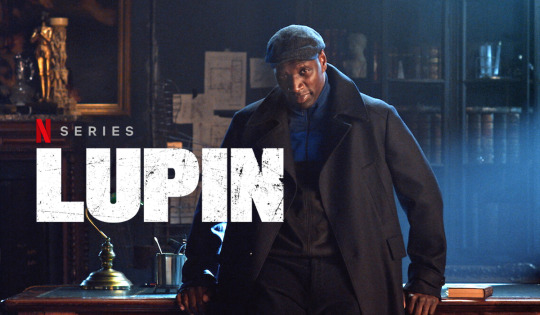
There’s a growing amount of good French stuff on TV and streaming services but a non-French audience will not have had the chance to have seen all of it yet. I can think of any number of French television drama/dramedy/cmedy series that are much better than Lupin with better plots, characters, and even a truer perspective of French society and even modern day France (Dix pour cent (Call My Agent!), Le Bureau des Légendes, Engrenages, Baron Noir, and Paris Police 1900). But you would be hard pressed to find anything that comes close to Lupin just for the sake of something fun to watch during the Covid lockdown.
What makes the current generation of home made French television series so interesting is how much of it is a reflection of France’s own anxieities about itself and its role in a increasingly English speaking dominating world. In a funny way it sees itself as defiant plucky Asterix fighting off the Roman American cultural hordes from totally invading their Francophone culture.
For sure, it has societal and racial issues stemming from its colonial legacy and issues of immigration and integration (France has the largest Muslim population in Europe). However it seems to want to ‘resolve’ these issues through the almost sacramental adherence to French secularist ideals rather than American inspired ideas of social justice and equity. There’s always been something very admirable about the French - from the time of General de Gaulle and perhaps before - always swinging from snooty ambivalence to outright antipathy towards the influence of American culture ‘americanising’ French culture (no to Walmarts or fast food chains for example).
Is it any wonder then that Netflix’s ill-conceived American series ‘Emily in Paris’ was widely hated and mocked within France for just perpetuating those lazy American tropes of Paris and French culture?
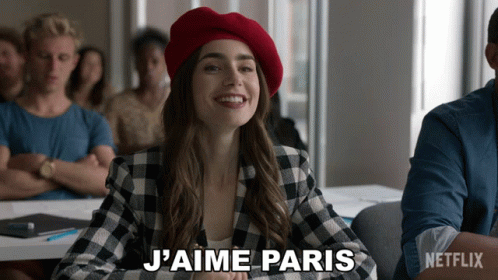
Personally I know Francophile Americans, long resident in Paris, who were frankly embarrassed and spent a lot of time apologising to their French friends. I have one American friend who has told me that she was so mad that she would have blind folded Emily and shoved her hard in the car boot and drive her all the way to the poorest of the banlieues in the grimey crime saturated suburbs of Paris - Seine-Saint-Denis came to mind - and dump her preening arse there. She would slap her and tell the spoilt entitied brat to make her own way back home - you know, to her spacious apartment in one of the most expensive arrondissements of Paris that of course(!) any American intern working for French marketing firms can afford.
I digress. My apologies. Watching this God awful show gives me PTSD.
Onto Lupin.
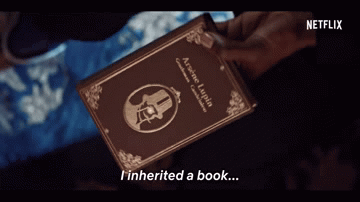
Thankfully Lupin doesn’t try to play to non-French tropes of what Paris is or isn’t. It does skim the surface of current discontents within French culture and society (race, class, power, and money) but ever so lightly so as to not get in the way of just spinning a good crowd pleasing yarn. It invites you to have fun and not to think too much. I have to be honest and say I enjoyed it as long as I suspended my disbelief here and there.
Lupin refers of course to the character Arsène Lupin, the French gentleman thief who stole jewellery from Parisian haute bourgeois and aristocracy at the turn of the century. Lupin, as written in the novels and short stories by Maurice Leblanc between 1905 and his death in 1941, was the archetypical anti-hero, a Robin Hood who stole from those who deserved it but kept the loot himself. He was often portrayed often a force for good, while operating on the wrong side of the law.
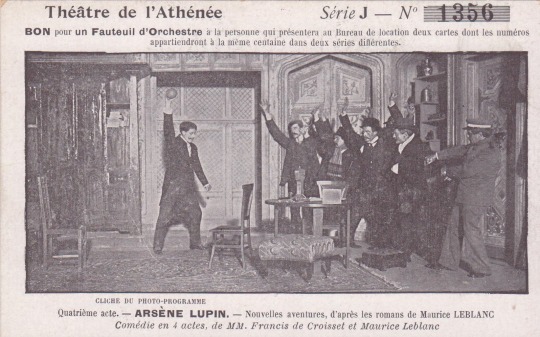
Lupin never really made much of an impact outside of France as he had within France where is revered with many French film and television adaptations. In England, we already had a Lupin type character in the form of A.J. Raffles, a cricket playing gentleman thief with his aristocratic side kick, Bunny. E.W. Horning’s stories of Raffles’ daring heists proved to be quite popular with the British public when Raffles first appeared on the scene in 1898. And even later Leslie Charteris’ The Saint took over the mantle from Raffles as the gentleman thief/adventuring Robin Hood.
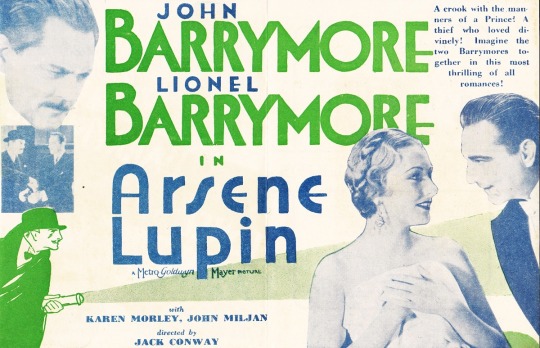
I think Hollywood tried to introduce him to an English speaking audience (legendary actor John Barrymore even played him) but he didn’t really take off and eventually they found their gentleman thief archetype in Sir Charles Lytton aka The Phantom (played by David Niven and Christopher Plummer) in the Pink Panther movies. So Lupin never got the English audience he deserved.
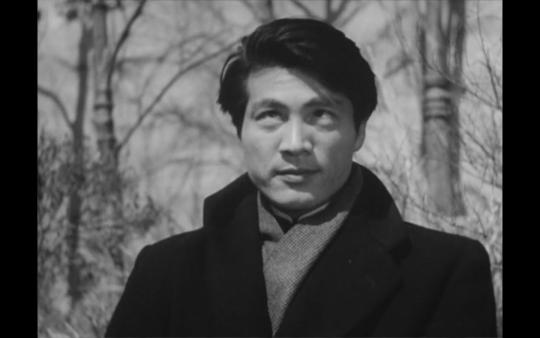
I first got wind of who Arsène Lupin was when I was growing up in Japan as a child. As strange as it sounds Lupin was big in Japan especially after World War Two. The Japanese did their own take on the Lupin character using Japanese actors and plot lines but it was Lupin.
I don’t know how exactly but I remember watching these scratchy DVDs of these Lupin inspired films. I think it was one of my parents’ Japanese friends who was mad for all things Lupin and he had studied French literature in France. Jogging my memory I now recall these black & white films were done in the 1950s. One starred Keiji Sada and the other version I remember was with Eija Okada (he was in Resnais’ classic film, Hiroshima Mon Amour) as Arsene Lupin called (I think) Kao-no Nai Otoko. I didn’t understand most of it at the time because it was all in Japanese and my Japanese (at the time) was pitiful, but it looked fun.
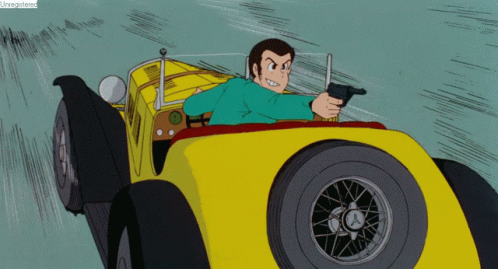
There was even a Japanese manga version of Lupin which was called Lupin III, - so named because he was the grandson of the real Arsène Lupin.
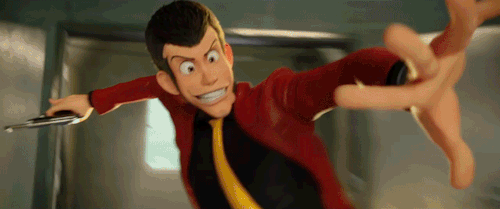
The 1960s manga series spawned generations of TV series which I do remember watching and finding it terribly exciting if somewhat confusing.
It was French expatriate friends whom my family knew that introduced me to the real Arsène Lupin. They had a few of the books authored by Maurice Leblanc. It was in French so I read them to improve my French but enjoyed the story along the way.
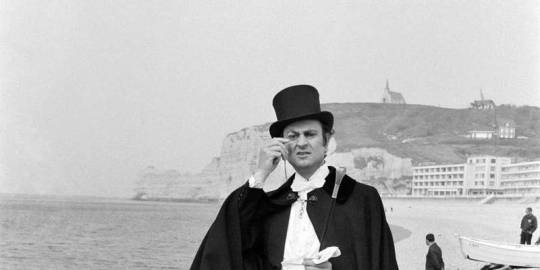
I also remember them showing me scratchy episodes of the 1970s Franco-German TV series ‘Arsène Lupin’ with the monocle wearing Georges Descrières in the lead role. It was a classical re-telling of the adventures of the aristocratic gentleman-burglar and very family friendly viewing. I don’t really remember much of it to be honest.
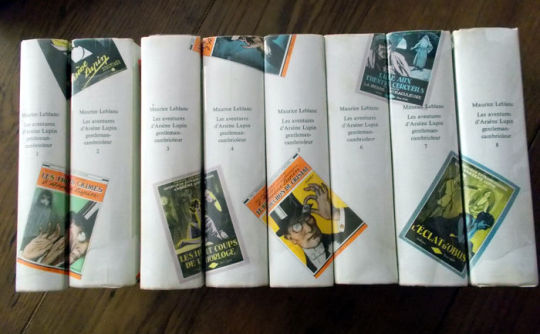
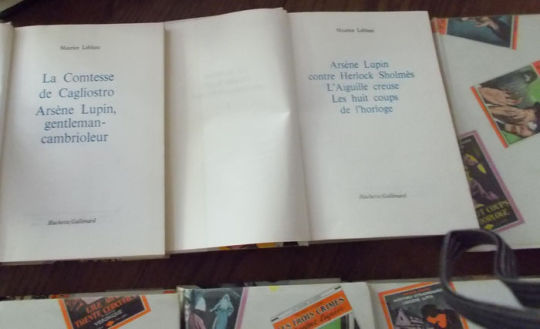
It was some years before I actually started to read more of the Maurice Leblanc’s novels and short stories collection. I have them all now. I was a teen and I remember being stuck in a snowed in a Swiss Alpine chalet and with nothing else to do but pull out a few dog eared books from the bookshelves belonging to our French host and read to pass the time.
I read Les Dents du tigre, Arsène Lupin vs Herlock Sholmes, and Les Huit Coups de l'horloge and thoroughly enjoyed them in the original French. I was already reading classic detective and mystery novels (Sherlock Holmes, Poirot etc) so it was natural to read the adventures of Arsène Lupin.
I haven’t got around to reading all the novels and short stories but I have read most of them and I enjoyed them all immensely. In the same way Conan Doyle, through Holmes and Watson, manages to conjure a convincing picture of late Victorian and early Edwardian England, so Leblanc manages to give us a taste of Belle Epoque France through the eyes of his suave gentleman-thief, Arsène Lupin.
Indeed it's a lot like reading Sherlock Holmes in that you're always trying to figure out how he did it, but the difference is that you are rooting for the bad guy. You can’t help but be drawn to this gentleman thief who is charming, comic, playful, and romantic and generous. Lupin is not an intellectual puzzle-solver but first a master criminal, later a detective helper, who maintains his curious ethics throughout his adventures. In this regard he is very much the anti-Sherlock Holmes; and I wasn’t disappointed when I actually read the story where Lupin faces off with Holmes himself. Brilliant!
I’ve also seen the 2004 French movie with Romain Duris in the Lupin lead role and it also starred the majestic Kristin Scott Thomas and the sexy Eva Green.
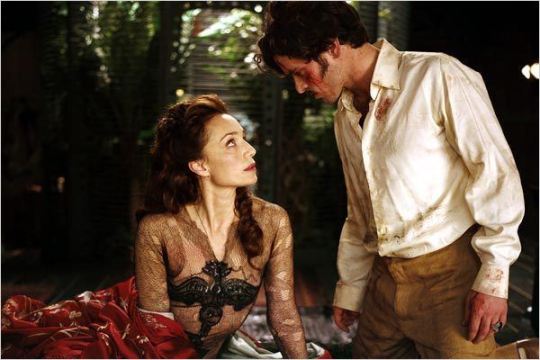
It was a decent adventure flick and it was a clear confluence of different Lupin novels (The Queen's Necklace (introducing Lupin's childhood), The Hollow Needle (where the treasure is the macguffin of the story), The Arrest of Arsène Lupin (the gala on the ship as a backdrop) and Josephine Balsamo, (one of Lupin’s most memorable opponents in the The Countess Of Cagliostro).
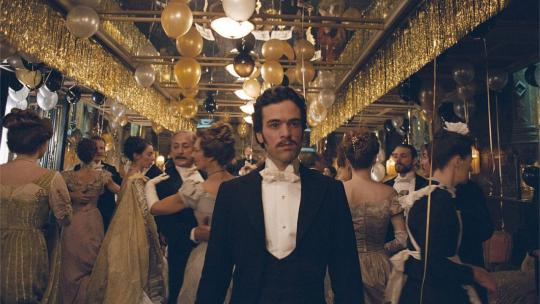
Romaine Duris, a fine classical actor, was I felt miscast because he didn’t have Lupin’s levity of wit and be at ease within himself. I love Duris in his other films but in Arsène Lupin and even in his other film, Moliere, he seemed ill at ease with the role. Perhaps that’s just me.
The latest Netflix adaptation (or reimagining to be more precise) is a welcome addition to the world of Arsène Lupin.If you don’t over-think it, it’s bags of fun.
Omar Sy is immensely likeable. Sy is a deservedly a big star in France - he won the best actor César for “The Intouchables,” an international hit - and has played forgettable secondary characters in big-budget American special effects movies (he was Chris Pratt’s assistant in “Jurassic World” and a minor mutant in “X-Men: Days of Future Past”). It was reportedly his desire to play Arsène Lupin, whom he’s compared to James Bond (“fun, funny, elegant”), that led to the series, created by British writer George Kay. And it is on his charm that the series largely, though not entirely, rests.
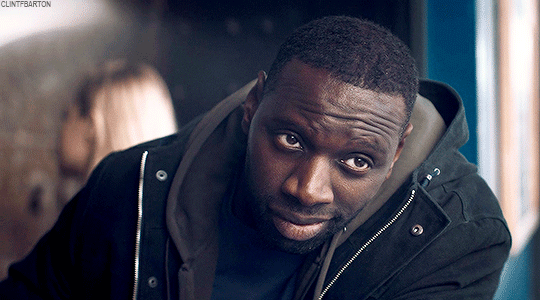
So the basic story revolves around a jewellery heist. Sy plays Assane Diop, a first-generation French-Senegalese man in contemporary Paris. A collection of Lupin stories, a gift from his father - whose undeserved fate Assane set himself to avenge in long-delayed, Count of Monte Cristo style upon a criminal tycoon - has made the actual Lupin books a foundation of his life and profitably illicit career. This fan-ship goes as far as borrowing practical ideas from the stories and constructing aliases out of anagrams of “Arsene Lupin,” a habit that will attract the interest of a low-level police detective (Soufiane Guerrab as Youssef Guedira) who shares Assane’s love of the books. (That the detective also shares an initial with Lupin’s own adversary, Inspector Ganimard, is possibly not a coincidence.)
Among the many comic delights of Lupin, is an unspoken one. Time and again, the show’s hero, master thief Assane Diop is able to slip into a place unnoticed, or by assuming a minor disguise that prevents witnesses from providing an accurate description of him to law enforcement.
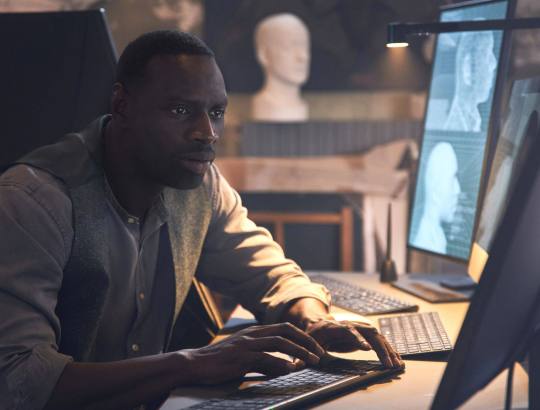
Why is this funny?
Because Omar Sy is six feet three (and, since most actors are short, seems even taller), is roughly as wide as soccer pitch, and is memorable even before he flashes his infectious million-Euro smile. This is not a man for whom anonymity should be possible - even allowing for racial bias in a majority-white country, Assane would be memorable and distinctive - and Lupin seems cheekily aware of this. Like the various incredible sleights of hand Assane deploys to pull off his thefts and escapes, his ability to be anyone, anywhere, is treated more as a superpower than as something even the world’s greatest criminal would be able to pull off.
At one point, when he’s slated for a cable news appearance as a much older man, we learn that Assane is also a master of disguise. The revelation of this skill arrives with a wink in the show, and it feels pointless to ask where he learned it, or how he affords movie-quality latex and makeup. Or rather, asking the question feels wrong.
We know this is impossible, the show seems to be asking its viewers again and again, but isn’t it so much fun?
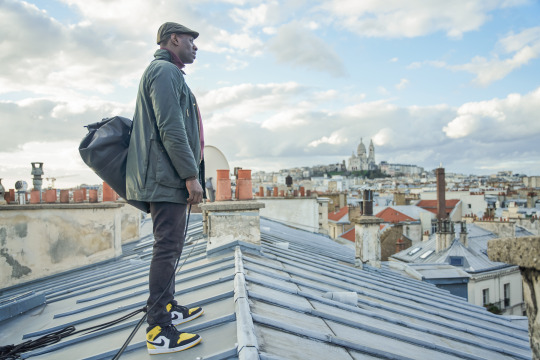
The performances and the production - it has that particularly European filmic quality of feeling natural even when it gets stylish - keep the series warm even as the plot is made up of incredulous contraptions that require everything to go right at just the right time and for human psychology to be 100% predictable. Its physics are classical rather than quantum, one might say, and like the world itself, which becomes more curious the deeper you peer into things, it is best handled along the surface. You do not want to take too much time working out the likelihood of any of this happening. Just go along for the ride.
Somehow, though, it all works because Sy is so magnetic and charming that questioning plot logic feels wildly besides the point. Though he never looks appreciably different in his various aliases (including one ill-conceived live-TV appearance done under old-man makeup and a thick beard), he changes his posture and voice ( if you watch it in French that is) enough to allow for the willing suspension of disbelief, in the same way that any lead actor as Superman has to do when playing Clark Kent. But Sy and the show are at their strongest when Assane is just being his own Superman self, utterly relaxed and confident in his own skin, and so captivating that his ex-partner, Claire, can’t really resist him despite ample reason to.
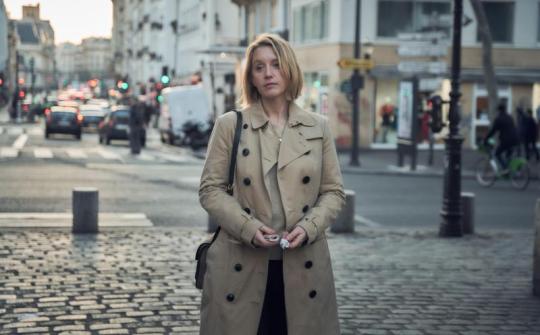
If Assane seems practically perfect in every way, he is not perfectly perfect. His most obvious failing is that his criminal shenanigans and revenging make him less than reliable in his daily life, affecting his relationships with ex-partner Claire (Ludivine Sagnier, whom non-French audiences might recognise from “The Young Pope” and “The New Pope”), who despairs of his inability to show up on time to see his son Raoul (Etan Simon). Like Sy, Sagnier brings a lot of soul to her part - though onscreen far less, she’s as important as Sy to the series’ success - and the two actors have great chemistry. Also impressive and key to creating sympathy are the actors who play their flashback teenage selves, Mamadou Haidara and Ludmilla Makowski. Really, you could do away with action elements and build a series around them.
This is a pity because Lupin often fumbles its emotional reveals in other parts - the story of Diop being torn between his job and his family feels like wheel-spinning, rather than genuine emotional intrigue.
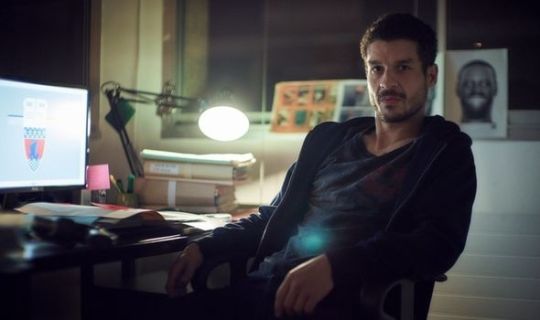
Soufiane Guerrab is wasted in the Young Detective Consumed by the Case role and spends most of this season pinning colour printouts of book covers to cork boards and getting waved off by his colleagues, who are all blinded or otherwise hampered by careerism.
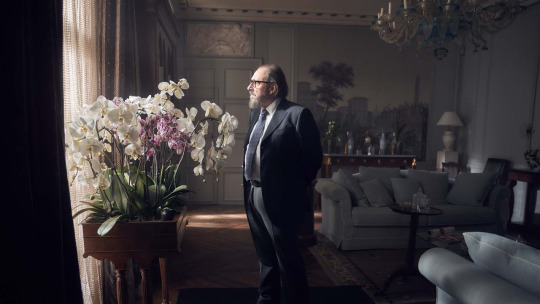
But to my mind the weakest link is the villain himself and his daughter. Veteran actor Hervé Pierre hams it up as Hubert Pellegrini, a business tycoon who is the patriarch of the Pellegrini family. He just comes across as animated cartoon villain with no character depth (think moustache twirling Russian villain, Boris Badenov, in the Rocky & Bullwinkle cartoon shows). He just emotes anger a lot without any nuance or hint of complexity.
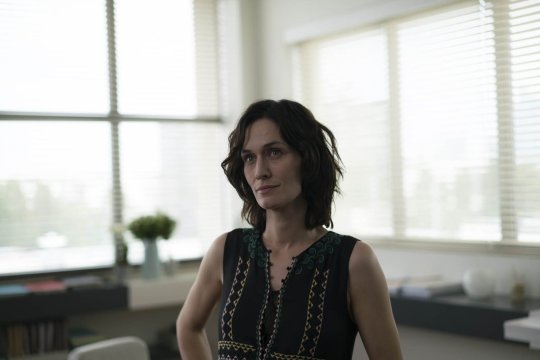
Even Clotilde Hesme who plays the daughter who is unaware of her father’s criminal tendencies is miscast. For the record I adore Clotilde Hesme as she one of France’s most talented classical actresses (that non-French outsiders will not have heard of). She is a classically theatre trained actress and is one of the best stage actresses of her generation that I have ever seen. I’ve seen her in plays where she is just mesmerising. She has said before that she’s more comfortable on the stage than she is on the screen. And when she has been on screen she still has been a powerful presence. She’s actually won a César too. Here in Lupin, she seems to have no agency and looks bored with nothing really to do.I really hope they give her more scenes in the next part of Lupin.
The series is at its best when following Diop enacting his plans, and when revealing each one from a different vantage, making us privy to every moving part like a magician revealing his secrets. The show captures the momentum of a clockwork heist, the tension of sudden obstacles and the ingenuity of improvised responses, with thrilling precision (especially in “Chapter 1 - Le Collier de la reine,” directed by Now You See Me’s Louis Leterrier).
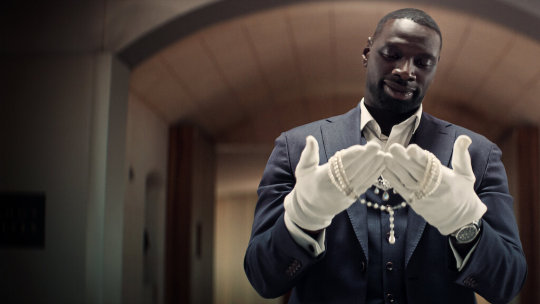
Lupin is also politically incisive when it wants to be; it brings to mind Ladj Ly’s Oscar-nominated 2019 film Les Misérables, which adapted the broad strokes of Victor Hugo’s novel about the 1832 Paris Rebellion, and modernised the story by focusing on the police brutality faced by non-white Parisians.
Lupin opens with Diop disguised as cleaning staff and entering the Louvre after-hours, alongside dozens of forgotten, anonymous non-white workers as they pass by “La Liberté guidant le people,” Eugène Delacroix’s famous painting of the July Revolution of 1830 which replaced France’s hereditary rule with popular sovereignty.
Before any semblance of plot or character, Lupin centres broken ideals and promises unkept (without giving too much away, the show’s primary villain has much more nationalistic view of French culture and history which merely adds to a cartoonish caricature than a complex character). The rest of the episode is about valuable jewels once owned by Marie Antionette - one of the most recognisable symbols of wealth and extravagance in times of extreme poverty - which are put up for auction by the Pelligrini family, and bid on by other wealthy collectors with bottomless purses and no sense of irony.
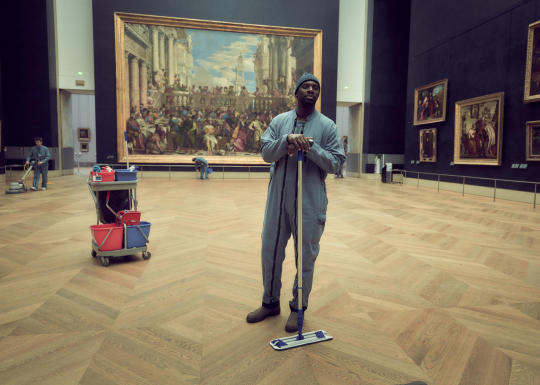
Granted, beyond this auction subplot, explorations of race and class are largely limited to individual interactions, but the show continues to refer back to (and implicitly comment on) its source material in ways that wink at the audience. An elderly, unassuming target of Diop’s schemes seems like an unlikely victim at first - Diop, though he acts in his own self-interest, usually displays a moral compass - until this victim reveals the colonial origins of her wealth, immediately re-contextualising the ethics of the situation, in a manner that Leblanc’s stories did not. (The show is yet to apply this lens to Arsène Lupin himself, who Diop treats with reverence, but that’s a secondary concern since Lupin is entirely fictional in-world).
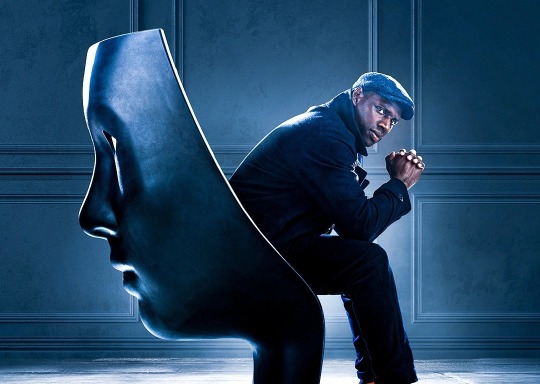
Barring some nagging structural problems - like cutting to flashbacks when things are getting exciting, or epilogues that feel ten minutes too long - Lupin mostly works. It plants a few personal seeds early on, which it keeps hinting at without fully addressing, but by the time its scattered elements come into focus, the show finally figures out how to weave them together, and delivers a mid-season cliffhanger that renders many of these flaws irrelevant.
Lupin manages to have fun even with an antiquated premise - the story of a suave con-man who charms his way through high-profile robberies - while adding just enough new spin on the concept to feel refreshing. Omar Sy may not have much to work with, but his alluring presence makes Assane Diop feel like a worthy successor to Arsène Lupin.
Lupin isn’t going to win César, BAFTA, or Emmy awards, or even turn heads for its ability to develop tertiary or even secondary plots or characters - that doesn’t really matter. You’re there to see a difficult hero be difficult and heroic - everyone else is there to be charmed, vexed, or eluded by them. Sy’s performance bounds off the screen, and is almost musical. He floats through scenes like he glides over the roofs and through the back alleys of Paris; he outmanoeuvres his foes with superior literary references and sheer athleticism. He is irresistible and also good at everything he tries, even kidnapping.
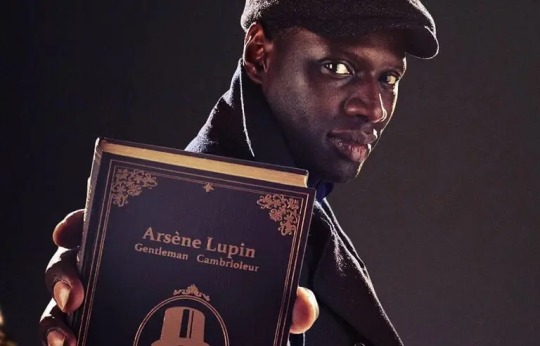
I would encourage anyone to watch Lupin for a fun care free ride. But the only caveat I would make is watch it in the original French.
If you don’t know French then put on the subtitles to understand (that’s what they are there for). The real crime is to watch this (or any film or television series) dubbed in a foreign language. It’s disrespectful to the actors and film makers and it’s silly because it’s comical to watch something dubbed over.
Please watch it in the original French.
Then go and read the books. You won’t regret it.
Thanks for your question.
#question#ask#lupin#omar sy#netflix#tv show#culture#personal#arsene lupin#japan#maurice leblanc#france#french#society#arts
48 notes
·
View notes
Text
What’s In a Book? Part 35
Moving on to our third new book, this one’s a bit of a read but well worth the effort!

Book’s cover courtesy of Amazon. Kimono: Kyoto To Catwalk Edited by Anna Jackson (ISBN 9-781851-779925) Date of Publication: 2020 Language: English Format: Hardcover Availability: Can Be Purchased New Price: $50 Errors: 0 First off, this book is MASSIVE! Like, it is “heckin’ thicc” as the kids would call it, which performs two tasks really well; first, it’s jam packed full of beautiful images of kimono and garments that the kimono inspired (there’s over 250). Second, it really brings to light the history of the kimono as we know it, where it’s at now, and where it’s headed into the future. So, let’s take a look at the various sections of the book to highlight some of its strong points: Introduction Kimono: Kyoto to Catwalk is the all around intro to the book and kimono itself. It’s a great start to a great book with the basic history of kimono. This section is written by Anna Jackson. Kimono In Japan Status, Style and Seduction seeks to educate on the ways in which kimono were both made during the Edo Period and how the first style guides showed women the latest ways to wear their kimono and hair. This section is written by Anna Jackson. Creation and Commerce looks at how kimono were produced by taking a look at books of kimono drawings and follows how different styles, such as yuzen, came to be the must have fashions of their day. This section is written by Anna Jackson and Iwao Nagasaki. Clothed in Splendor: Bridal Kimono from the Edo Period to the Present Day goes over the changing fashions of bridal kimono, from the extravagant uchikake to the kurofurisode of the Taisho Period to the new uchikake of today along with the various reasons for these changes. This section is written by Masami Yamada. Picturing Fashion in Edo-Period Japan takes a look at woodblock prints and how kimono was portrayed to the public. This section was written by Masami Yamada. Fashion For The Foreign A Taste For The Exotic: Foreign Textiles and Japanese Dress shows how even the limited trade with other countries during the Edo Period influenced patterns and materials found in kimono and everyday products. This section is written by Anna Jackson. The “Nippon Kimono” Voyages To Europe takes a look at the first trade between Dutch sailors and the Japanese and how kimono first arrived in Europe. This section is written by Yuzuruha Oyama. Interwoven Gowns: A Tale of Global Trade continues on the themes begun in the previous section but adds in the addition of foreign fabrics made into export kimono. This section is written by Ariane Fennetaux. Geographically Confused but Familiarly Exotic: The Influence of Kimono in Seventeenth-Century England explores, just as the title states, how the kimono came to influence fashion in England in the seventeenth century, including paintings for the first time. This section is written by Susan North. Shifting Styles Fashioning Modernity in Japan takes a look at how Japan’s reopening during the Meiji Period changed the colors, patterns, and production of kimono and how it continued to evolve until the end of World War II. This section is written by Anna Jackson. The “Kimono Craze”: From Exoticism to Fashionability looks at the craze for all things Japanese in Europe in the late 18th century and early 19th century. This section is written by Elizabeth Kramer and Akiko Savas. Picturing Kimono in Britain, Europe, and America takes a look at the array of art created at the time of the Kimono Craze and how it came to be a fashionable object of women everywhere in the West. This section is written by Elizabeth Kramer. Radical Restructure: The Impact of Kimono looks at how the kimono influenced popular fashion in both its structure and shape. This section is written by Akiko Fukai. Kimono as Costume Kimono Codified: Uniform For The Nation examines how kimono became codified through kimono schools after World War II in an effort to standardize the wear and movement of the garment. This section is written by Josephine Rout. Geisha: Perpetuating the Kimono Mystique gives a basic background of geisha and how geisha became synonymous with kimono in the West. This section is written by Lesley Downer. Kimono Rental, Tourism, and Sartorial Expression looks at the growing industry and kimono rentals that allow tourists, both Japanese and foreigners alike, the chance to experience the garment. This section is written by Elizabeth Kramer. Behind the Screen: Kimono as Costume looks at the ways that popular culture, especially in the West, has taken the traditional garment and adapted it for film and stage use. This section is written by Josephine Rout. Kimono Reinvention Kimono Reborn looks at the new way that Japanese artists have chosen to express themselves through kimono by bringing back old techniques and making them new again along with new influences in their patterns and styles. This section is written by Rupert Faulkner. Moriguchi Kunihiko examines the artist of the same name and how his production of fine kimono as brought kimono into modernity. This section was written by Anna Jackson. Kikuchi Nobuko: Stylish Rebellion looks at the collection of Kikuchi Nobuko and her way of mixing tradition with modernity. This section is written by Kohka Yoshimura. Kimono Transformation Kimono Dreams explores how kimono have influenced high fashion for decades with the most prolific designers all turning to the iconic garment for inspiration. This section is written by Claire Wilcox. Statement Piece: The Kimono Jacket Trend looks at the recent trend of Western women wearing “kimono” jackets as a new statement piece. This section is written by Elizabeth Kramer. Kimono Revolution focuses on how kimono is being made today in an effort to attract new people, both in Japan and abroad, into wearing the garment, including new ways of production and incorporating a variety of new motifs never before seen on the garment. This section is written by Sheila Cliff. Jōtarō Saitō explores the work of the titular kimono designer and his impact on the future of fashion. This section is written by Anna Jackson. From Edo to Instagram: Kimono Fashion finally looks at how kimono is being worn as street fashion once again. This section is written by Josephine Rout. With the exception of Rupert Faulkner, this entire book is written and produced by women! The only real drawback that I could find to this book is that some sections are a bit dryer than others, but those sections were usually shorter than some of the others and were easy enough to get through. Overall it’s a wonderful examination of the kimono both throughout history and into the present, which is a book that’s needed to be written for quite a while now! Rating: ✪✪✪✪✪ (out of 5)
67 notes
·
View notes
Note
I feel like this is a lot to ask but do u have any tips for writing Cullen?
*rubs hands together* ohohoho DO i??? (the answer is yes. i do.) i’ve actually saved a lot of this in a draft to post but here is the opportunity to finish it!
full disclosure: i’m not entirely sure where this runs from canon to personal headcanon. i spend a lot of time in cullen’s headspace with my own fic, and i’m well aware that my interpretations of him are not always shared by others.
Rule #1. Cullen is not an Alistair clone. More can be found in my post here. But the main sentiment? Yes, they are both awkward around potential love interests, and yes, they both grew up in the Chantry system. But that’s about where the similarities end.
Which leads me to clarify: Cullen is not actually awkward. Hear me out—we all know Cullen can be reduced to a stuttering mess when he’s around a potential love interest, but outside of that? NEVER. He may not be one for eloquence, but romance aside, he has zero trouble stating exactly what he means, and especially so when he’s angry.
He’s not one for wordplay or eloquence. He says what he means and means what he says, and in the very rare event that he is sarcastic, it’s so dry it could easily be missed, so when writing a Cullen joke, it should be so subtle that without context, one could miss the joke entirely.
He is competitive, and outside a romantic situation, he will stop at very little to win, whether it’s in chess or in a war council decision. He is unforgiving (possibly as much to himself as to people who’ve wronged him or what he stands for). He is decisive. Unless you’re writing him in a romantic situation, I wouldn’t envision him ever answering “I don’t know” to a question or a problem posed, but rather be either strongly affirmative or resistant to an idea.
In following up to his competitiveness, Cullen would die on a sinking ship. In a humorous sense, he continues to play Josephine in Wicked Grace until he’s left with literally nothing (when you’d presume he could’ve quit any other time before his losses became so...great). But in a less funny sense, he literally sticks around Kirkwall until the very end. He’s not one to easily admit he was wrong, and that’s one of his flaws. It takes a lot (many would argue too much) for him to see the error in his ways, and even when he does, he spends more time berating himself for his actions (or inactions) than he does trying to make things right.
Which leads into another point: Cullen has a tendency to live in the past. So much of what he does for the Inquisition is as a counteraction to what he’s done in Kirkwall, or even Ferelden. He canonically says that he can’t give less to the Inquisition than he gave to the templars, which is admirable in a sense, but also goes to show just how much his past runs deeply into everything he does. I’m a firm believer that it takes an outside influence (be it the Inquisitor, a romanced character, or friends) to get Cullen to start living for now and for the future instead of for the past.
But enough dark takes! A romanced Cullen is softspoken, kind, gentle, honest, and even doting (if you’ll pardon the headcanon). A complete turnaround from Cullen among enemies. He’s just so soft in general. You can just tell he’s never felt a love like this before (or dare I say never felt love at all?) because he’s just so in awe of everything when it comes to his LI. I think he’d be protective. Maybe overprotective, even. I think he has the potential to make foolish decisions in the name of someone he loves, although I understand that’s more of a personal headcanon of mine. I think he loves deeply and would wear his heart on his sleeve for the right person.
He also has friends. I generally believe this is unique to DAI-and-onward Cullen, but he has friends who he cares about and who care about him. This includes, even platonically, the Inquisitor, but also Cassandra and Varric, who were there before and perhaps at his worst and still support him. And he can make more friends. I think for much of his life he’s been too devoted to the Chantry and the Order but Inquisition affords him the opportunity to make friends, and I greatly value Cullen fics where he not only has a positive romance but also has positive friendships.
My last bit of advice for writing Cullen is simply to write him dynamically. With complexity. He is nether wholly evil nor a saint, and I’m steadfastly wary of anyone who portrays him on either side of that spectrum. He’s a deeply flawed character who wants to atone for his past and has the potential to be a better person, a good person. Whether you believe Bioware did this for him is up to you, but as fic writers and creators, this is something we can do for him ourselves, if we want to and if we approach it right.
#cullen rutherford#dragon age meta#dragon age inquisition#dragon age#dai#cullen#long post#sexysideoftheforce#answered
543 notes
·
View notes